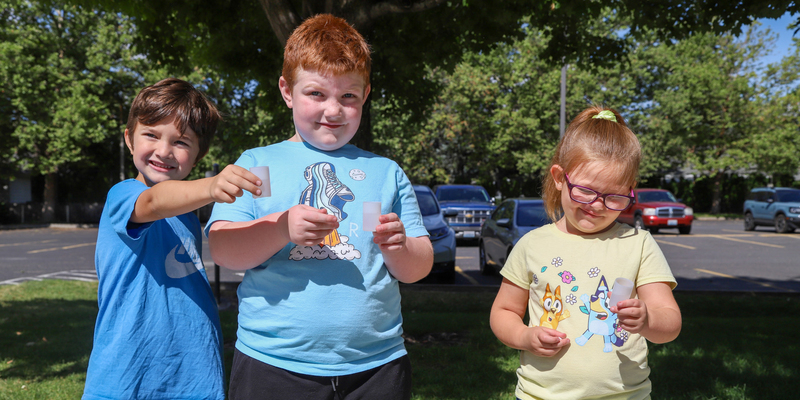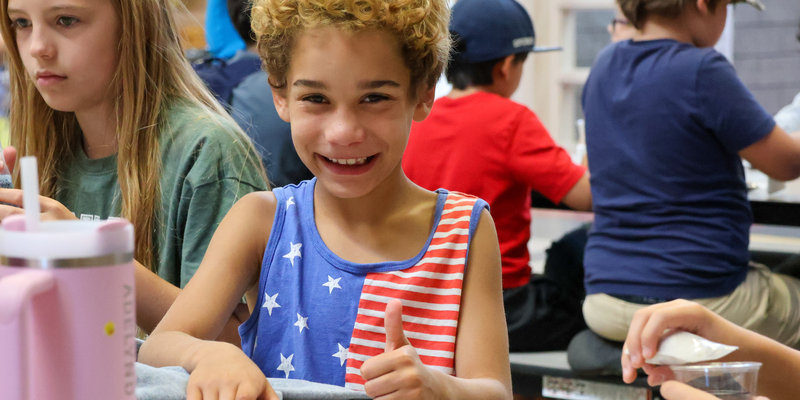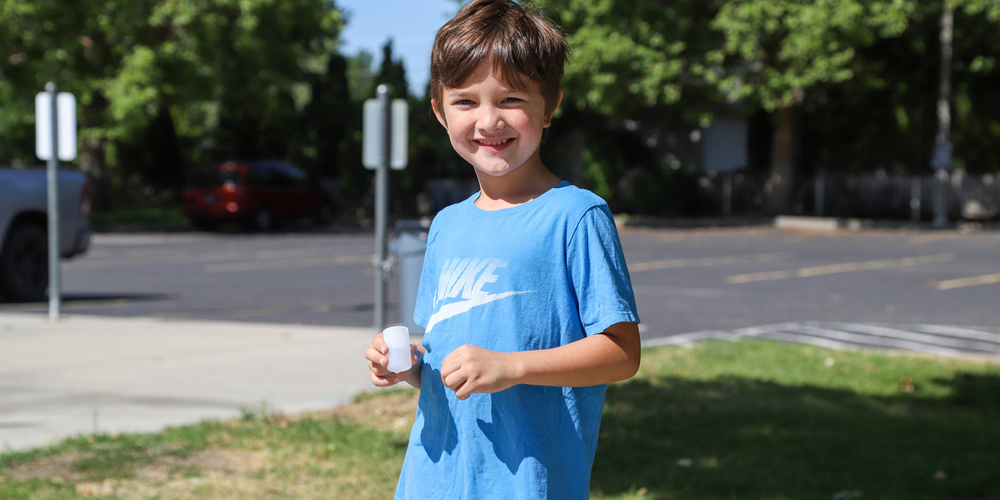Amy Cross Peacock is a working parent who wants her elementary school-aged daughter to keep learning during the summer.
Ashlea Johnson has a non-traditional work schedule and needs to find ways to keep her daughter engaged before and after school.
Thanks to the 21st Century Community Learning Center (21 CCLC) at Cooper Elementary, these two moms and many other working parents in Spokane have opportunities for their students to learn and grow away from a screen in a supervised, structured environment.
21 CCLC is a federally funded Title program at six elementary schools and two middle schools in Spokane Public Schools (SPS). Communities in Schools (CIS), a nationwide network that supports student success, partners with SPS to host before- and after-school programs and clubs for kids to be engaged in real life, staying active and learning new things. 21 CCLC organizes four weeks of summer programming at the eight schools as well.
For working families, 21 CCLC is incredibly helpful in reducing or eliminating childcare expenses.
“My daughter comes here for day camp in the summer,” Cross Peacock said one morning at Cooper Elementary. “She enjoys seeing her friends, having meals and playing. She loves puzzles and problem solving. She loves outdoor playtime, and it's been a great, great option for her.”
She went on to share that 21 CCLC plays a big part in making it possible for her to do her job. “This provides me with some time to go and do my work,” she said.” And she would be bored, and this just gives her a really good opportunity to be engaged in learning and fun.”
For Johnson, the school year programming helps her get her daughter to school and herself to work on time.
“She was in the before school programs, which allowed me to not be late to work,” Johnson said. “I was a single mom for the last two years and I had to also work full time, and it's just been us, no family in town.”

21 CCLC is a student-focused program, but its residual effects help caregivers stay employed, which creates structure and stability for families and kids, not to mention a strong Spokane economy.
At Cooper, Emily Shervey – or Miss Emily, as the kids and parents call her – is the CIS support staff member who creates the overall academic programming and organizes events during the school year.
"This program gives families an opportunity to work and not have to pay for childcare services in the summer,” Shervey said. “It also introduces these kids to several different possibilities that they would never have because of the funding that we get. They get to go on so many field trips. They're trying out new and different subjects and robotics and crazy things they never thought they would be able to do.”
Some of those new subjects during the summer program include launching rockets or completing an obstacle course with their peers cheering them on. Students also spend time creating arts and crafts with their peers, and some students have even been able to grow their own food in a gardening activity.

During the school year, before- and after-school clubs include Homework Club, Choir Club, Art Club, Chess Club and Volleyball.
Without these opportunities, these kids would be at home in a mostly unstructured environment in front of a screen, parents said. And this time spent with their peers away from a screen is paying dividends at school.
“I'm not as exciting as technology,” said Laurie Leckner, Cooper second grade teacher. “But it seems like since Emily's been doing these programs and showing kids that there are so many different activities that you can be engaged in, they are excited to bring that into the classroom. I participated in the Homework Club for kids who need to get caught up or want more. It wasn't just kids that needed help with homework that showed up. It was kids that wanted to learn more and have that support.”
At Cooper, participation in extracurricular activities was around 15% a few years ago. During the 2024-25 school year, 65% of Cooper students were involved in a school club or activity. Research is clear that participation in clubs and activities boosts student academic achievement and school attendance.
For some students, these experiences would be out of reach without 21 CCLC.
“I know at some other schools, parents can put their kids in dance classes, for example,” Leckner said. “Well, that's hundreds of dollars. Some of our families can't afford that. And here, these kids get a taste of that, and I get emotional about that because our kids don't always get the same opportunity as others.”

